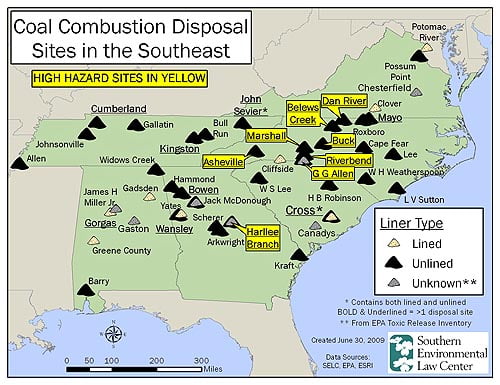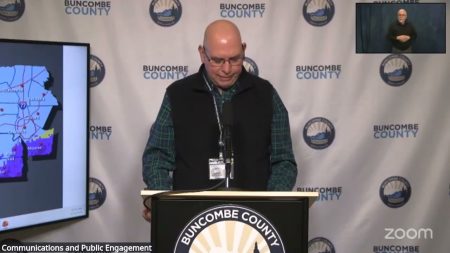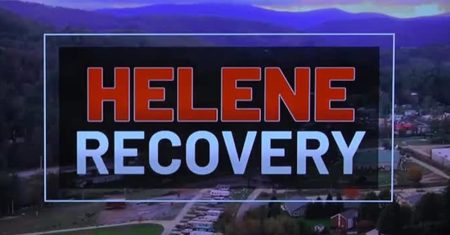New Legislation Leaves Asheville at Risk
by Melissa Williams
Before Congress went on legislative break last week, the Coal Ash Recycling and Oversight Act of 2012 was introduced in the Senate by Sen. Max Baucus (D-MT), Sen. Kent Conrad (R-ND) and Sen. Joe Hoeven (D-SD).
Many environmental, social, and eco-justice groups are concerned this new legislation provides little incentive for states to change their current course of action on coal ash disposal. While the new bill is designed to encourage states to create a regulatory program to deal with coal ash, missing from the legislation are protective standards for human health and the environment, strong cleanup standards, and enforceable deadlines to permit or close coal ash dumps. The bill also does not address contamination from inactive coal ash ponds, known as legacy sites.
“This bill does not adequately address the environmental and human health costs stemming from coal ash pollution borne by the American people,” said French Broad Riverkeeper Hartwell Carson.
The dangers of coal ash ponds came to national attention in December 2008 when a dam failure in Kingston, TN, destroyed two dozen homes and flooded the Clinch and Emory Rivers with one billion gallons of coal ash.
In Western North Carolina, there are two coal ash ponds at Progress Energy’s Skyland plant in Arden, which sits above Interstate 26 and the French Broad River. Both of the pond dams are listed by the EPA as “high hazard,” meaning that if either dam fails there would likely be loss of life. Of the 26 active coal ash lagoons in North Carolina, 12 are listed as high hazard.
Monitoring at Progress Energy’s Asheville plant shows that these unlined coal ash ponds are leaching toxic heavy metals into groundwater and threatening the French Broad River. There have also been reports of fugitive coal ash dust blowing onto nearby homes. Toxins in coal ash have been linked to an increase in cancer rates, respiratory illness, and problems with neurological development. Coal ash pollution can also harm animals, especially fish and amphibians.
WNCA Executive Director Julie Mayfield says the bill falls short of expectations and that federal oversight is sorely needed. “Coal ash is a national problem that requires consistent attention and standards only the U.S. Environmental Protection Agency (EPA) can provide.”
Carson disagrees with coal industry advocates’ arguments that regulating coal ash is prohibitively expensive. “Cleaning up the Kingston spill will cost taxpayers almost a billion dollars,” Carson said. “Good environmental policy is good economic policy: we need to clean up and contain coal ash before it further contaminates our rivers and drinking water.”
Sandra Diaz, Campaign Coordinator for Appalachian Voices, encourages “Senators Hagan and Burr to stand strong for clean water and to call on the U.S. Environmental Protection Agency to release long-awaited rules on coal ash disposal, so that enforceable federal standards that are protective of human health and safety can be established.”








